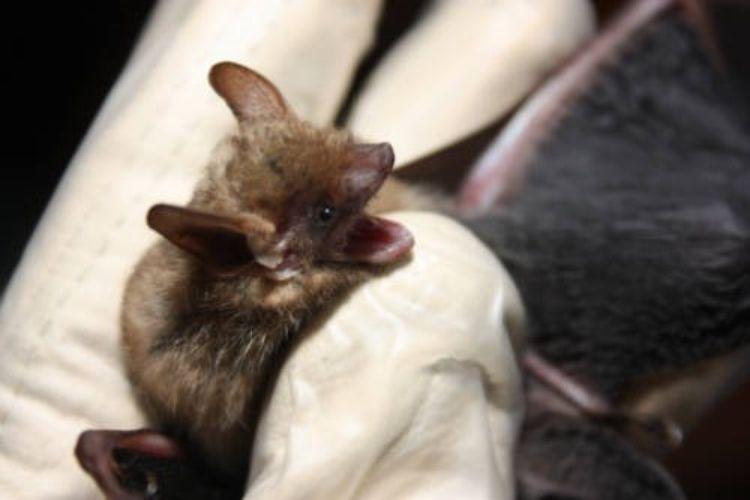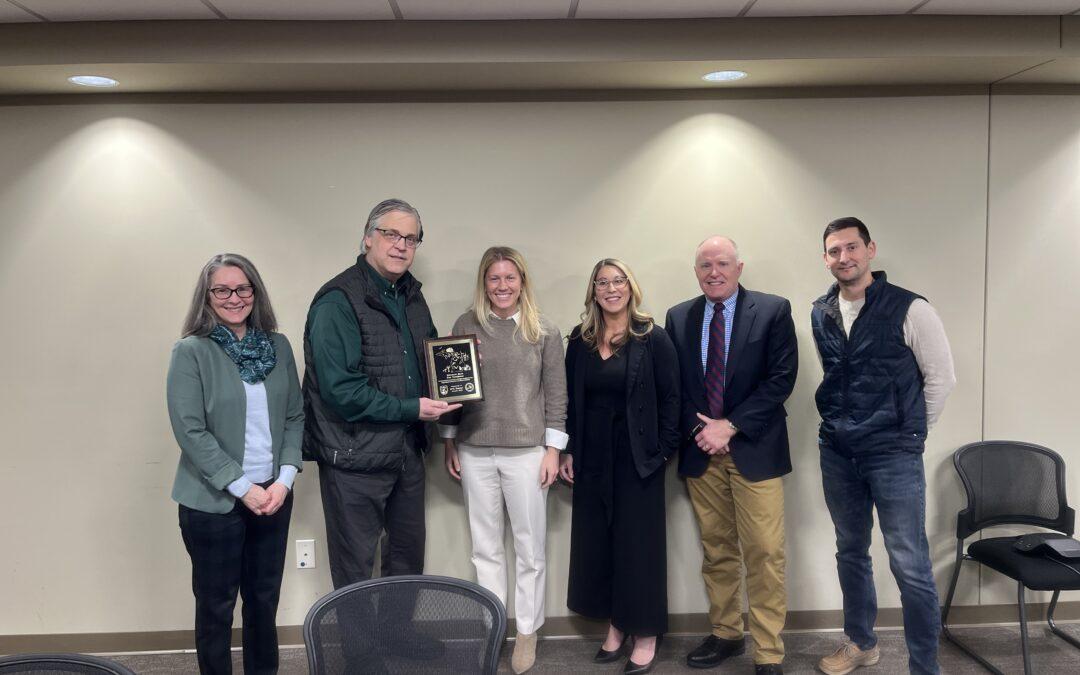DTE is continuously looking for ways we can support and protect the environment at our wind and solar parks. That’s why we recently conducted an extensive analysis across our Michigan fleet of 700 wind turbines to develop a new bat conservation strategy that will greatly reduce risks to bats at all our wind parks.
This strategy includes rotating the wind turbine blades to be parallel with the prevailing wind direction, which slows rotation when there are low wind speeds and bats are most active. Additionally, we’ve raised the threshold for the wind speed at which the turbine blades begin to rotate and generate electricity from June through October, which is during fall migration and a peak activity period for bats.
Due to the success of this new bat conservation strategy, the U.S. Fish and Wildlife Service (USFWS) Michigan Field Office and Department of Natural Resources (DNR) Wildlife Division presented DTE with their Michigan Bats for Tomorrow award. The USFWS and DNR wanted to recognize us for this level of voluntary, proactive conservation, which is “invaluable to state and national efforts to address bat declines,” according to Jennifer Wong, fish and wildlife biologist, USFWS.
“We seized a valuable opportunity to significantly contribute to bat conservation in Michigan,” said Lindsay Wold, associate engineer of Environmental Strategy for Renewables. “My enthusiasm for finding sustainable solutions related to wildlife, energy, and business was fully realized through this collaborative team effort.”

A tri-colored bat, one of Michigan’s nine bat species. | Photo by U.S. Fish & Wildlife Service
Bats are critical to healthy, functioning ecosystems, but they face several threats – including climate change, habitat loss, and a fungal disease known as white-nose syndrome – that are making them increasingly rare. Five of Michigan’s nine native bats are now listed by the state as threatened or endangered, and two are federally listed as endangered.
“Bats are arguably one of the most misunderstood species, yet they are essential to the health of our environment and economy,” said Amanda Ignatowski, technical supervisor of Environmental Strategy for Renewables. “We’ve developed and implemented a strategy across our wind fleet that meets this conservation need head-on, saving thousands of bats each year. It’s a great example of ways in which we can innovate and deliver on DTE’s long-standing commitment to environmental stewardship, while prioritizing business needs, and ensuring that humans and wildlife can coexist for many years to come.”
“This was a win-win for renewables and wildlife and exemplifies the way industry and regulators can collaborate for a positive outcome.” – Matt Wagner, manager, Renewable Energy Development
“I am so proud that we can continue to advance our carbon reduction goals and take meaningful actions to protect our bat neighbors.” – Rob Lee, manager, Environmental Strategy
“Great recognition for DTE and the team that made it happen. Leading with a growth mindset allowed us to find solutions that achieve business objectives while protecting the environment. Great teamwork!” – Fadi Mourad, director, Environmental Strategy
